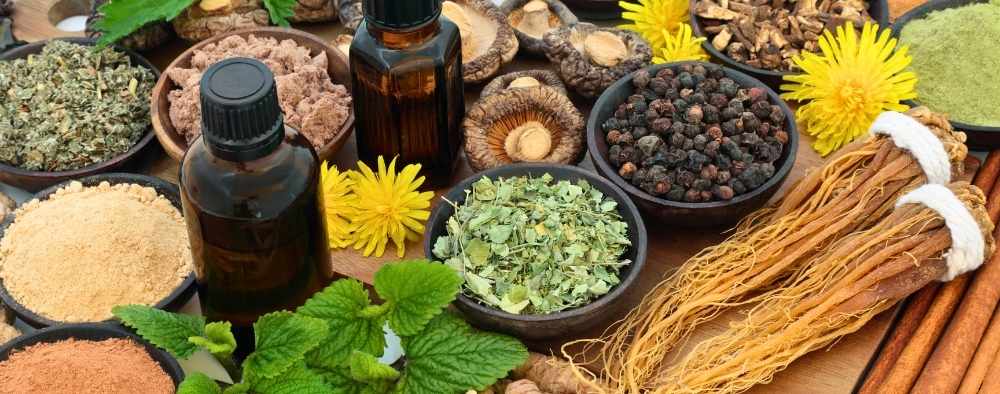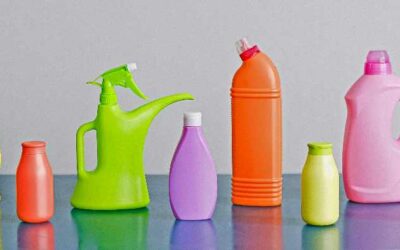by Susan Stamper •
Content Marketing Manager, ChiroHealthUSA •
Two words I keep seeing pop up everywhere, from coffee labels to fizzy drinks in fancy cans, are nootropics and adaptogens. They sound like something cooked up in a lab, but they’ve become as trendy as avocado toast at a brunch spot. One promises to give you the focus of a quarterback in overtime, while the other claims to wrap you in calm like a Sunday afternoon nap on the porch.
So what exactly are these things? Do they work? And should you give them a try? Let’s walk through it together. But just so we’re clear: this isn’t medical advice. Always check in with your doctor before adding any new supplements to your daily routine. Health trends may be fun to explore, but your safety is always the top priority.
What Are Nootropics and Adaptogens, Anyway?
Let’s break this down without getting too fancy.
Nootropics are like jumper cables for your brain. They’re substances—natural or manmade—that aim to improve brain performance. Think memory, focus, creativity, or even motivation. You might’ve heard people call them “smart drugs” or “cognitive enhancers.”
Adaptogens, on the other hand, are more like emotional shock absorbers. These little wonders help your body adapt (see what they did there?) to stress. Whether you’re wrangling toddlers, juggling work deadlines, or just plain frazzled, adaptogens help keep your system more balanced.
A Peek Behind the Hype: What Does the Science Say?
Let’s take a look at what science says about these two darlings of the wellness world.
Nootropics: Mental Magic or Marketing Fluff?
Nootropics range from natural stuff like caffeine and L-theanine (found in green tea) to more complex compounds like bacopa monnieri, rhodiola, and even prescription meds (but let’s keep it legal and preferably natural, y’all).
According to a review in Frontiers in Pharmacology, some natural nootropics do show promise for improving attention and cognitive function—especially when used over time (Faraone et al., 2021). 🧠 But here’s the kicker: effects can vary from person to person, like chili recipes at a cook-off. These benefits tend to show up gradually, like good barbecue—it takes time.
The Mayo Clinic also weighed in, saying drinks with brain boosters may give you a slight edge in alertness (mostly due to caffeine), but the jury’s still out on whether these potions really provide lasting cognitive benefits (Mayo Clinic, 2023). In other words, they may help sharpen your focus, but they won’t turn you into Einstein by breakfast.
Adaptogens: Mother Nature’s Mood Managers
Adaptogens like ashwagandha, holy basil, ginseng, and rhodiola rosea have been used in Ayurvedic and Chinese medicine for generations. They’re believed to help regulate the body’s stress response and maintain homeostasis—fancy talk for “keeping your body steady when life gets messy.”
A study in Current Clinical Pharmacology found that adaptogens may indeed reduce mental fatigue and improve performance in stressful situations (Panossian & Wikman, 2010). Imagine a storm rolling in, and instead of panicking, your body just puts up the shutters and turns on the kettle.
They might not zap your anxiety like a lightning bolt, but many folks report feeling steadier and more grounded—like sitting on a porch swing watching the sunset.
Nootropics vs. Adaptogens: What’s the Difference?
To keep things simple, here’s a side-by-side comparison:
| Nootropics 🧠 | Adaptogens 🌿 | |
| What They Do | Support focus, memory, and brain power | Help the body adapt to stress |
| Best For | Staying sharp, alert, and motivated | Calming the nerves and staying balanced |
| Examples | Caffeine, Bacopa, L-theanine | Ashwagandha, Rhodiola, Holy Basil |
| Common Forms | Coffee, capsules, functional drinks | Teas, tinctures, supplements |
| Feels Like | Focused like a coonhound on a scent | Calm during a family reunion at full volume |
Some wellness brands have gotten wise to the power of both and now combine them in drinks that promise energy and calm in the same bottle. Functional drinks like kombucha, mushroom coffee, or CBD seltzers are stackin’ these like flapjacks (National Geographic, 2023). It’s kind of like a yin-yang smoothie—just make sure you understand what you’re drinking before you start mixing and matching like a mad scientist.
A Story Told Over Strawberry Wine
A friend of mine told me about a drink she tried with ashwagandha and reishi mushrooms blended into a creamy chai latte. Now, bless her heart, she said it tasted a bit like dirt had a baby with chamomile at first sip—but she stuck with it, hoping the benefits would outweigh the bark.
After about a week of sipping it mid-afternoon, she said she started feeling steadier. Not zonked out or sluggish—just calm, like her nerves weren’t constantly jumping like frogs on a hot skillet. She still handled her busy schedule, but felt like her shoulders weren’t carrying quite so much invisible weight.
Now, is that solid science? Maybe not. But it sure speaks to the power of how adaptogens might support your mental state—and at the very least, it made for a good story over a glass of strawberry wine.
Things to Consider Before You Dive In
Now don’t go cleaning out the supplement aisle just yet. Here are a few things to consider:
1. Know Your Needs
If you’re dragging mentally, a nootropic might give you a gentle lift. If you’re feeling wired and worn out, an adaptogen might help bring things back into balance. But don’t just pick one because it’s trending.
2. Check for Side Effects and Interactions
Some herbs and enhancers can mess with your meds or make you feel jittery. Always read labels, and again—talk to your doc before trying anything new.
3. Start Low and Go Slow
Start with low doses. Just because a little helps doesn’t mean more is better. Think of it like adding spice to gumbo—you want to enhance the flavor, not burn your tongue off.
Should You Give ‘Em a Whirl?
Well, my friend, that’s up to you.
The big deal with nootropics and adaptogens is they offer another way to support your well-being. They aren’t cures, they’re companions—like a loyal friend, or a blue heeler you raised up from a pup. They won’t fix a poor diet, replace sleep, or substitute for true relaxation—but they might offer a little nudge in the right direction.
The market’s heating up, so if you decide to give them a go, don’t get swept up in the hoopla. Knowledge is power. Take your time, do your homework, look for high-quality sources, pay attention to how your body responds, listen to your gut, and don’t buy the moon just because someone bottled stardust.
And remember—your well-being isn’t a trend. It’s a lifelong journey, and you deserve to feel good your way.
Final Thought (And Bless Your Heart If You Made It This Far)
Nootropics and adaptogens might sound like science fiction, but they’re just the latest tools in the wellness toolkit. Maybe you’ll love them, maybe you’ll pass. What works for one may not work for another. Give yourself grace, trust your instincts, and remember: balance is better than burnout, and understanding what’s out there helps you make informed choices—and that’s always worth the time.
Whether you’re looking for focus, peace, or just something new to stir into your morning brew, nootropics and adaptogens might be worth a try. But don’t forget—health fads come and go, but a well-loved body and a rested mind? That’s the real gold standard.
Now go grab yourself a glass of lemon water (or adaptogen tea if you’re feelin’ wild), kick your feet up, and enjoy the sweet simplicity of takin’ care of yourself. 💛
References
Faraone, S. V., Banaschewski, T., Coghill, D., Zheng, Y., Biederman, J., Bellgrove, M. A., … & Cortese, S. (2021). The World Federation of ADHD International Consensus Statement: 208 Evidence-based conclusions about the disorder. Frontiers in Pharmacology, 12, 9415189. https://pmc.ncbi.nlm.nih.gov/articles/PMC9415189/
Mayo Clinic. (2023). Mayo Clinic Minute: Can a beverage provide a brain boost? Mayo Clinic News Network. https://newsnetwork.mayoclinic.org/discussion/mayo-clinic-minute-can-a-beverage-provide-a-brain-boost/
National Geographic. (2023). Kombucha, nootropics, and attention: Are functional drinks the future? National Geographic Science. https://www.nationalgeographic.com/science/article/kombucha-nootropics-attention-memory-gut-immune-functional-drinks
New Chapter. (2023). Adaptogens vs. Nootropics: What’s the difference? https://newchapter.com/blogs/wellness-blog/adaptogens-vs-nootropics-whats-the-difference?srsltid=AfmBOorRoTjz1eSY4JjyB28AWmNd9Gms87ZMrcttJ9Rh66Hywe6KNP9L
Panossian, A., & Wikman, G. (2010). Effects of adaptogens on the central nervous system and the molecular mechanisms associated with their stress—protective activity. Current Clinical Pharmacology, 5(3), 198–219. https://pmc.ncbi.nlm.nih.gov/articles/PMC3991026/
Glanbia Nutritionals. (2023). Adaptogens and nootropics: The future of mood food fortification. https://www.glanbianutritionals.com/en/nutri-knowledge-center/insights/adaptogens-and-nootropics-future-mood-food-fortification
Mind Lab Pro. (2023). Nootropics vs Adaptogens. https://www.mindlabpro.com/blogs/nootropics/nootropics-vs-adaptogens?srsltid=AfmBOoo7h0XjPBmxpHo78zVR4LsrgcfSaNlLeTtFjthgNhSV3qJIhrWy








